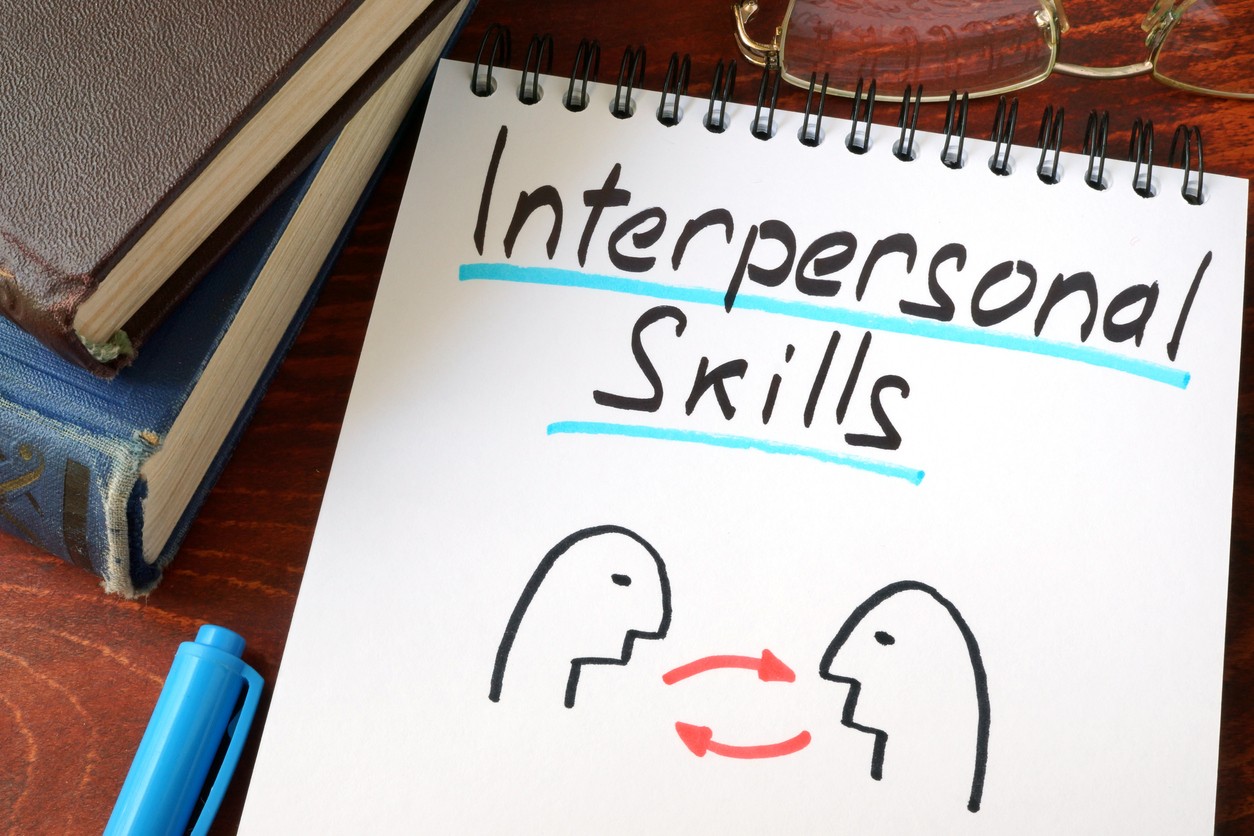
You don’t have to be a sociologist to know that people crave personal validation.
We see it every day in the workplace – the mere act of saying hello to your office mates as you walk into the building or waving goodbye as you leave a zoom call can make a difference.
Of course, the opposite can be true; some people will prefer negative attention to being ignored.
Studies show that interpersonal relationships in the workplace can be critical in developing and maintaining trust and general positive feelings.
So what are interpersonal skills?
Interpersonal skills are sometimes referred to as people skills, soft skills and sometimes even emotional intelligence.
No matter what vocabulary you use, the basic idea is that you are deliberate about the way you communicate and interact with others in your work environment.
These are skills you use not only for the outer client-facing part of your job but also for the inside team interactions.
The need for good interpersonal skills isn’t to say that only friendly extroverts can be successful!
No! Everyone in the office needs interpersonal skills to make the workplace work better. Here’s what we’re talking about:
- Listening
- Collaborating with others
- Presenting ideas
- Communicating with team members
- Negotiating
- Problem-solving
- Communicating with the public
- Managing conflict
- Empathy
- Positive attitude
Social competence is essential in the workplace – and outside of it.
After all, we’re surrounded by people in person or virtually in many parts of our lives.
The ability to connect and communicate is vital
Everyone wants to work in an environment where they are appreciated and credited for the excellent work they do.
We all want to believe our employer and co-workers understand our feelings without judging us.
And we love when those around us show interest in what we’re doing professionally and personally.
One study shows that being compassionate with your workforce is more than just building relationships. People who empathize with others are generally less stressed in their daily lives.
You’ve heard it said that none of us is as smart as all of us.
In the workplace, the ability to discuss issues, evaluate options and reach mutual solutions benefits the individual and the organization.
A workplace where interpersonal skills are valued and enriched is healthier.
Employees can express views and know that their contributions will be valued and respected – even if they’re not implemented.
Management studies show that humans need people to talk to and share ideas and feelings.
The ability to give and receive honest feedback is dependent on good interpersonal skills and emotional intelligence.
How can you improve your interpersonal skills?
Dynamic Works Institute has built over 160 five-minute POWER courses to help you.
You can develop your soft skills in less than 5 minutes with easy-to-follow, narrowly focused video-based learning that will improve your chances of getting that job you want; or moving up the ranks in your company.
For example, you’ll learn specific ways to improve your communications and customer service skills.
In addition, we’ve got courses in problem-solving and decision making and leadership skills that will help you shine.
At the same time, you can also build your confidence and learn how the meshing of soft and hard skills can help you excel in today’s workplace and the future.
Check out our Power Course Roadmaps.
The 5 Minute Countdown Series for Job Seekers offers fifty-two 5-minute online crash courses that support every phase of your career journey and increase the chances of getting a job while speeding up the job search process.
You’ll find tracks that help you find your niche or master essential interview skills.
You’ll even find courses to help with the job search, including resume writing and e-portfolio building.
We’ll even help you with the skills you need once you land the job!
The Customer Service track offers fifty-five courses that help you build your self-confidence and become a more effective communicator.
Courses cover customer communication, problem-solving, extreme customer service, self-confidence, handling difficult situations and self-direction.
Communication is our third track with fifty five 5-Minute courses to assist you in developing your communication style.
You’ll learn how to communicate verbally, non-verbally effectively and in written communication.
In addition, you can learn to build self-confidence and, at the same time, figure out a path for self-improvement.



